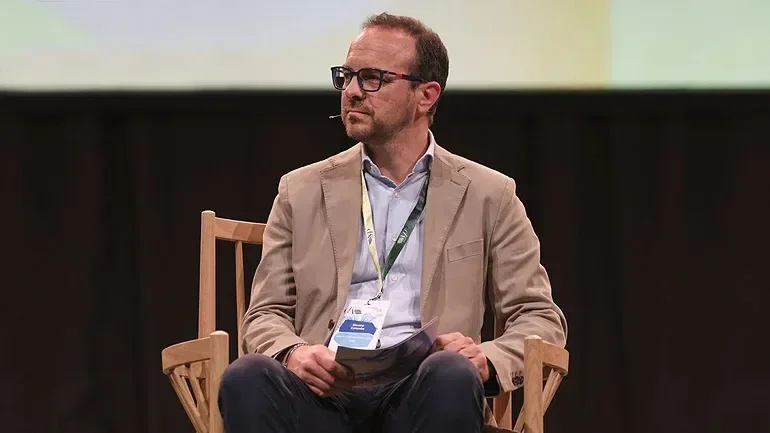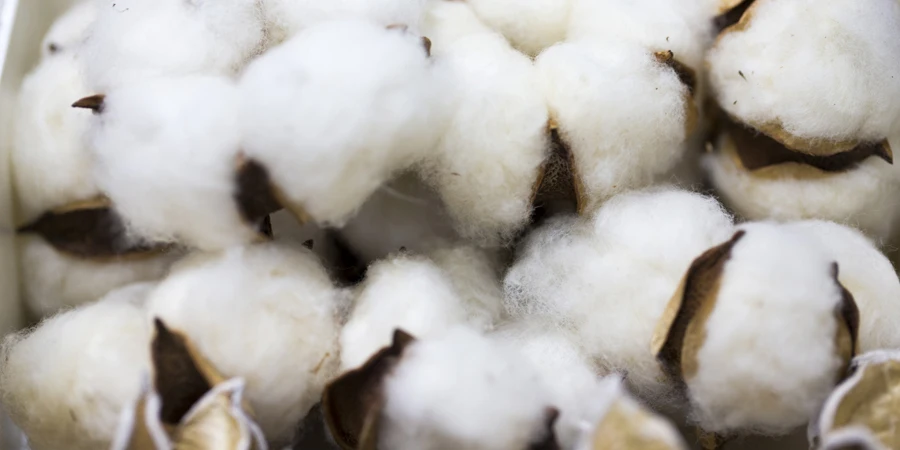In 2022 Italian clothing company OVS announced a cotton cultivation partnership in Sicily which it says opened its eyes to the reality of raw material sourcing and it wants more brands to do the same.

It’s a novel approach but one that menswear and womenswear brand OVS swears by in ensuring its cotton meets its ethical and environmental sourcing standards.
In 2022, OVS embarked on a project that would ensure an “all-Italian supply chain” made using cotton harvested in Sicily.
What prompted OVS to embark on its own cotton cultivation project?
The move aligned with OVS’ goals to source more sustainable raw materials. Since 2021, 100% of the retailer’s cotton has come from more sustainable sources, however the cultivation of cotton grown in Sicily meant it could start up local production to guarantee the traceability of the whole supply.
It came from the awareness that sustainable claims are a struggle. While part of a garment’s production process is entirely sustainable, it may be reliant on another part – for example water use during the cotton cultivation process – that isn’t at all sustainable.
“It was so complicated to communicate sustainability,” explained Simone Colombo, head of corporate sustainability at OVS.
“We decided to no longer rely on a mass balance system,” he began. “Of course, we source organic, recycled and Better Cotton, which is mass balance. And while we appreciate the work of Better Cotton which is a powerful and impactful programme, we recognise it is complicated to communicate. We would spend a lot of time explaining to our own colleagues how mass balance works and then trying to work out how to explain that to a consumer in a small ticket.”
As a result, it stripped out all communication about sustainable cotton.
“If it’s organic, we say it is. This, we can prove through traceability. But we moved away from labelling it as sustainable. We found it created confusion rather than transparency.”
He pointed to “failures in the certification system” including scandals linked to audits performed at the farming level or other stages of the supply chain which revealed “the chain of custody is a bit weak”.
“We had to reinforce it with a different approach. We needed to understand how the cotton supply chain really worked and focus on transparency and traceability, not as a value for the consumer at first, but as a primary need for us to fully understand the value chain.”
In 2022 the brand launched its first all-Sicilian cotton clothing collection as a result of its partnership with the company Cotone Organico di Sicilia.
While the plantation, created just outside Palermo will not achieve the same production levels as when cotton fields occupied thousands of hectares on the island, the recovery of a lost cotton crop played a part in the rebirth of the area, boosting textile manufacture, and creating opportunities for the local economy. The techniques used protect the soil, reduce the use of water and respect biodiversity.
The fibre origin was authenticated by marking it with a unique DNA created specifically for OVS by Haelixa.
Then the finished product came from Progetto Quid, an ethical fashion company based near Verona.
On a panel session exploring transparency from farm to fabric and detailing the steps in an end-to-end protocol, Columbo explained the rationale behind the project and the learnings.
Colombo said it is a small project but with “huge potential.”
“Consider that cotton cultivation disappeared in Italy in the 1970s so we had no knowledge, machinery, techniques or farmers. But we found this one who decided to start cotton cultivation in Sicily where the soil is good enough, the weather is good and the result was interesting. I certainly wouldn’t say optimal or excellent. But interesting.”
Findings from the project
As a brand, he said, OVS achieved better knowledge of cotton cultivation.
“It’s impressive to understand the implication of cotton cultivation from a farming point of view which is different when you’re used to talking about it at a yarn or fabric level. At a fibre level, it’s different KPIs you’re dealing with, a different engagement system for your supplier who is very far down the chain.”
To engage its people, OVS employees including store staff and managers would be involved in cotton picking.
“They felt they were making the t-shirts selling in the stores. That was amazing. Many had never seen a cotton plant before. That was extremely powerful as an opportunity to train our people on cotton which is one of our main materials.”
Of course, the project was not short of its challenges and in OVS’ case it was lack of access to machinery, gins and mills. As a result, it struck up a partnership with a local university that housed an old picking machine.
“This moved us from a cultivation of two tonnes of cotton fibres to 20 tonnes. We are now trying to push up the production because it allows the farmer a selling opportunity. We will buy everything that he produces. We have 30,000 tonnes per year of cotton needs so we can buy whatever comes from these small fields.”
One of the things Colombo is keen to do is avoid using claims like “sustainable” saying that it is not enough to simply be hinging claims on a single action.
With the cotton cultivation process one of the challenges they faced was land waste resulting from poor irrigation creating low water volumes.
However, the project was fruitful in providing a new way to think about raw material sourcing.
“The partnership we have as a brand and retailer with the cotton farmer allows us to avoid any supply chain speculation because at every stage of the supply chain – which is now visible to us – there is a markup. We can buy cotton at the right price, not a low price and possibly even a higher price, but it’s the right price because it allows for investments and better farming practices. We avoid all the markups for other stages like trading for example.”
What brands can learn from the OVS cotton cultivation project
Tara Luckman, stakeholder engagement manager (consultant), US Cotton Trust Protocol, explained there were several takeaways for brands from the OVS project.
“For years we’ve been asking as a sector to remove bad actors and we’re starting to see that power coming in with the regulatory measures now. So for those that are doing a good job, it’s really something to be celebrated. We’ve talked about removing the hesitancy around data sharing and we can see now where it is going and what the goal is. It’s not just data for data’s sake. There is a reason for providing accurate customer information that is going to come into digital product passports.
“There’s going to be some work involved in organising all of that data but once it’s in there we can open up a whole new opportunity in terms of educating consumers and trying to solve some of the challenges that Simone was talking about like dumbing down and the oversimplification of sustainability. Messaging will be done in a uniform way.”
Meanwhile, Mead Hardwick, partner at Hardwick Planting Company called what OVS is doing “tremendous”.
“We grow a commodity where we have little control over pricing and so having partners like the US Cotton Trust Protocol to ensure our product always has a seat at the table is huge. It’s about ensuring our resilience from market changes, and environmental changes so we are able to provide the volumes our industry needs.
“I think what OVS wants to do is tremendous and there are other brands that want to do that. It’s figuring out the first step to doing that. It’s a complicated supply chain. But brands that are willing to step outside of their comfort zone and get involved will go a long way to helping ensure the supply of cotton is reliable and sustainable.”
Source from Just Style
Disclaimer: The information set forth above is provided by just-style.com independently of Alibaba.com. Alibaba.com makes no representation and warranties as to the quality and reliability of the seller and products.




